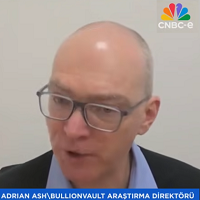Record numbers of gold and silver owners at world No.1 marketplace...
Gold market analysis & gold investment research
The Dollar is losing value, cheap oil remains vital...
Why US and Canadian miners stocks trade at a premium...
If 'might is right' then this massive energy build-out will matter...
Follow Us












 Email us
Email us